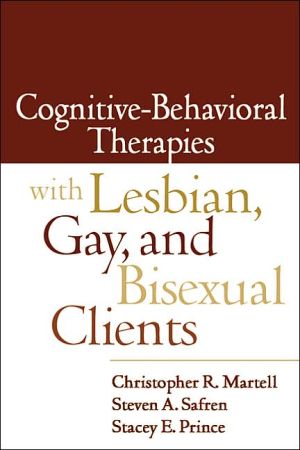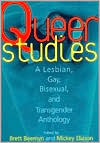Unequal Opportunity: Health Disparities Affecting Gay and Bisexual Men in the United States
Search in google:
Contributors ixIntroductionHealth Disparities Affecting Gay and Bisexual Men in the United States: An Introduction Richard J. Wolitski Ronald O. Valdiserri Ron Stall 3Evidence of Health Disparities Affecting Gay and Bisexual MenSexual Orientation and Violent Victimization: Hate Crimes and Intimate Partner Violence among Gay and Bisexual Males in the United States Gregory M. Herek Charles Sims 35Childhood Sexual Abuse Experienced by Gay and Bisexual Men: Understanding the Disparities and Interventions to Help Eliminate Them David W. Purcell Jocelyn D. Patterson Pilgrim S. Spikes, Jr. 72Prevalence of Primary Mental Health Morbidity and Suicide Symptoms among Gay and Bisexual Men Susan D. Cochran Vickie M. Mays 97Alcohol, Tobacco, and Drug Use among Gay and Bisexual Men David G. Ostrow Ron Stall 121Sexually Transmitted Infections among Gay and Bisexual Men Ronald O. Valdiserri 159Hepatitis A, B, and C Virus Infections among Men who Have Sex with Men in the United States: Transmission, Epidemiology, and Intervention Scott D. Rhodes Leland J. Yee 194HIV Infection among Gay and Bisexual Men Patrick S. Sullivan Richard J. Wolitski 220Cross-Cutting IssuesInteracting Epidemics and Gay Men's Health: A Theory of Syndemic Production among Urban Gay Men Ron Stall Mark Friedman Joseph A. Catania 251Health Disparities for Homosexual Youth: The Children Left Behind Gary Remafedi 275The Unique Experiences of Older Gay and Bisexual Men: Associations with Health and Well-Being Arnold H. Grossman 303Social Discrimination and Health Outcomes in African American, Latino, and Asian/Pacific Islander Gay Men Rafael M. Diaz John L. Peterson Kyung-Hee Choi 327Access to Optimal Care among Gay and Bisexual Men: Identifying Barriers and Promoting Culturally Competent Care Rajeev Ramchand Claude Earl Fox 355Moving the Field Forward: A Strategic Framework to Develop Health Research among MSM Communities Ron Stall Ronald O. Valdiserri Richard J. Wolitski 379Index 389
\ Reviewer: Lisa M Kuhns, PhD, MPH(Howard Brown Health Center)\ Description: The editors have produced a solid, straightforward book on health disparities among gay and bisexual men in the U.S. with an emphasis on an epidemiological treatment of the topic.\ Purpose: Given recent interest in and exploration of the coexisting and interacting health concerns impacting gay and bisexual men and their cross-disciplinary nature, this compilation and review is both helpful and timely.\ Audience: The book is written for advanced undergraduate and graduate students, as well as established researchers and public health practitioners. The authors are the leading researchers in the field, well respected by academic colleagues, public health officials, and practitioners.\ Features: Major areas of health disparity among gay and bisexual men are covered in separate chapters by experts in each area, including violence and victimization (including a separate chapter on childhood victimization), mental health, substance use, sexually transmitted diseases (including a separate chapter on hepatitis A, B, and C), and HIV infection. Other chapters are devoted to special populations, including youth, racial/ethnic minorities, and older men. In chapter 9, Stall, Friedman, and Catania propose a developmental model, based on syndemic theory, which brings these health issues together to explain how they co-occur, providing a welcome theoretical basis for causation. In the final chapter, the authors suggest several strategies to move the field beyond largely first generation research reviewed in this work toward second and third generation investigations to further explain disparities and to design and test interventions to address them.\ Assessment: While the description on the inside cover of the book indicates "in-depth" consideration of racial/ethnic minorities, as well as younger and older men, the book has only one short chapter on each subpopulation, which limits the depth of coverage for each, particularly racial/ethnic minorities — African Americans, Latinos, Asian/Pacific Islanders are all discussed in one chapter. Despite this, the book provides good coverage of the primary health issues and subpopulations of concern and will serve as a guide and reference on health disparities among gay and bisexual men for researchers and students in a variety of academic disciplines, as well as practitioners and policy makers, for years to come. The authors submit that future generations of research will help to specify the mechanisms by which "social and cultural marginalization result in poorer individual and community health." Perhaps social and cultural drivers should also be targets of research and intervention efforts?\ \








